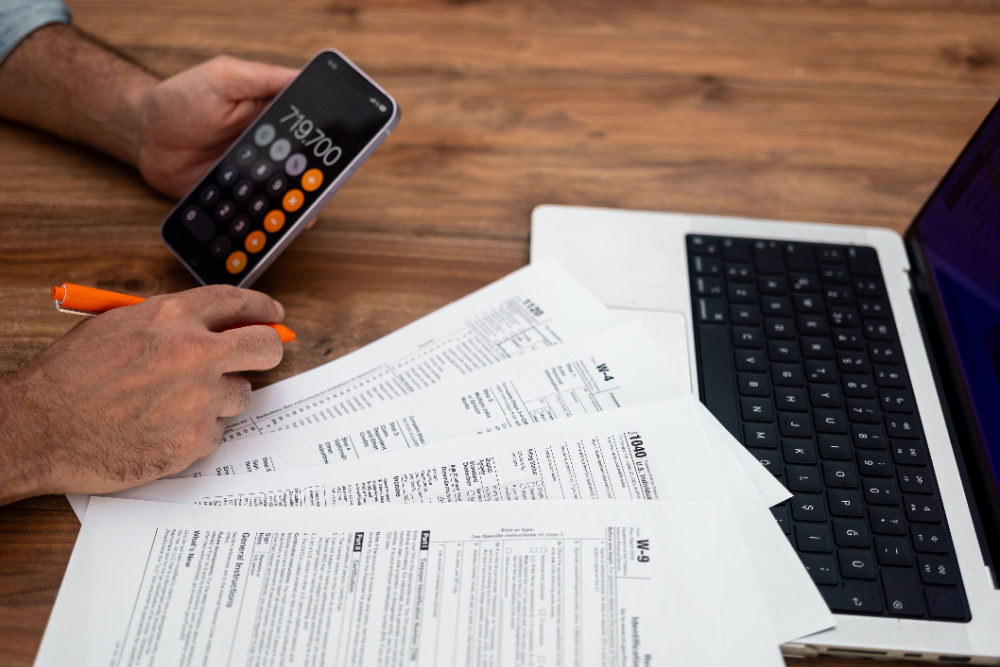As tax season approaches, finding the right tax preparer becomes a top priority for individuals and businesses alike. A skilled tax professional can help you navigate complex tax laws, maximize deductions, and avoid unnecessary mistakes. However, choosing the wrong preparer can lead to errors, penalties, or even legal trouble.
To ensure a smooth tax filing process, here are ten essential questions to ask when selecting your tax preparer.
1. Do You Have a Valid PTIN?
A preparer tax identification number (PTIN) is mandatory for anyone preparing federal tax returns for compensation. Verify that the preparer has a valid PTIN for the current tax year. Preparers without this certification cannot legally file returns on your behalf.
Be cautious of preparers who attempt to bypass this rule by asking you to sign a self-prepared return or claiming that professionally prepared returns are more likely to be audited—this is false and a major red flag.
2. What Is Your Background and Experience?
Not all tax preparers have the same qualifications. Some may specialize in individual returns, while others focus on businesses, estates, or international taxes.
Ask about their certifications, such as being a certified public accountant (CPA) or enrolled agent (EA), and their experience in handling returns similar to yours. Understanding their expertise will help you determine if they can address your specific needs.
3. How Do You Handle Returns for My Unique Situation?
Every tax situation is different. Whether you’re a freelancer, a business owner, or have investment income, your tax preparer should be familiar with the intricacies of your circumstances.
For example, business owners might need expertise in Schedule C or partnership tax returns, while real estate investors may require a preparer skilled in Schedule E filings. Ensure the preparer has experience handling cases like yours to avoid errors or missed opportunities for savings.
4. What Records and Documentation Will You Need?
A reputable preparer will require detailed records such as W-2s, 1099s, 1098s, and receipts for deductions. Avoid anyone willing to file a return using only a pay stub, as this violates IRS rules and could lead to complications.
They should also ask for additional documentation for special credits, like the Earned Income Tax Credit, to ensure your return is accurate and compliant.
5. How Do You Determine Fees?
Understanding the preparer’s fee structure is critical. Some charge flat fees, while others bill based on the complexity of your return. Be wary of preparers who base their fees on a percentage of your refund, as this can incentivize unethical practices.
Also, confirm whether fees include state and local tax filings or if these are charged separately.
6. Do You Offer Electronic Filing (e-Filing)?
E-filing is the fastest and most efficient way to submit your tax return and receive refunds. Ask if your preparer offers e-filing services, as the IRS mandates that paid preparers handling more than ten returns must file electronically.
Additionally, consider cloud-based solutions that allow you to access your tax documents securely and collaborate with your preparer in real-time.
7. Are You Familiar With State and Local Tax Requirements?
State and local tax laws vary significantly, and compliance can become even more complicated if you live and work in different states or own property in multiple jurisdictions.
Ensure your tax preparer has experience with multi-state filings and local tax regulations to avoid errors and potential penalties.
8. What Technology Do You Use for Tax Preparation?
Modern tax preparers rely on advanced software to handle complex returns. Ask which software they use and whether it integrates with any tools or platforms you currently use.
Additionally, cloud-hosted tax software can improve collaboration and provide real-time updates on your return’s progress. Choosing a preparer who uses reliable, cutting-edge technology ensures accuracy and security.
9. When Will My Return Be Filed?
Timely filing is crucial to avoid penalties. Ask your tax preparer for a realistic timeline and ensure they can meet all deadlines.
It’s also a good idea to request a copy of the filed return for your records. This ensures transparency and provides a reference for future tax planning.
10. How Do You Handle Unique Tax Scenarios?
If your tax situation involves uncommon elements—such as international income, trust funds, or complex investments—ensure your preparer has experience addressing these scenarios. Their expertise can make a significant difference in maximizing your benefits and ensuring compliance with tax laws.
Conclusion
Selecting the right tax preparer is a critical step toward a stress-free tax season. By asking these questions, you can identify a trustworthy and competent professional who understands your unique needs and can handle the complexities of your tax situation.
Take the time to vet potential preparers thoroughly—it’s an investment in your financial security and peace of mind.
Are you in need of QuickBooks hosting for your business’s financial management? Reach out to us today!




